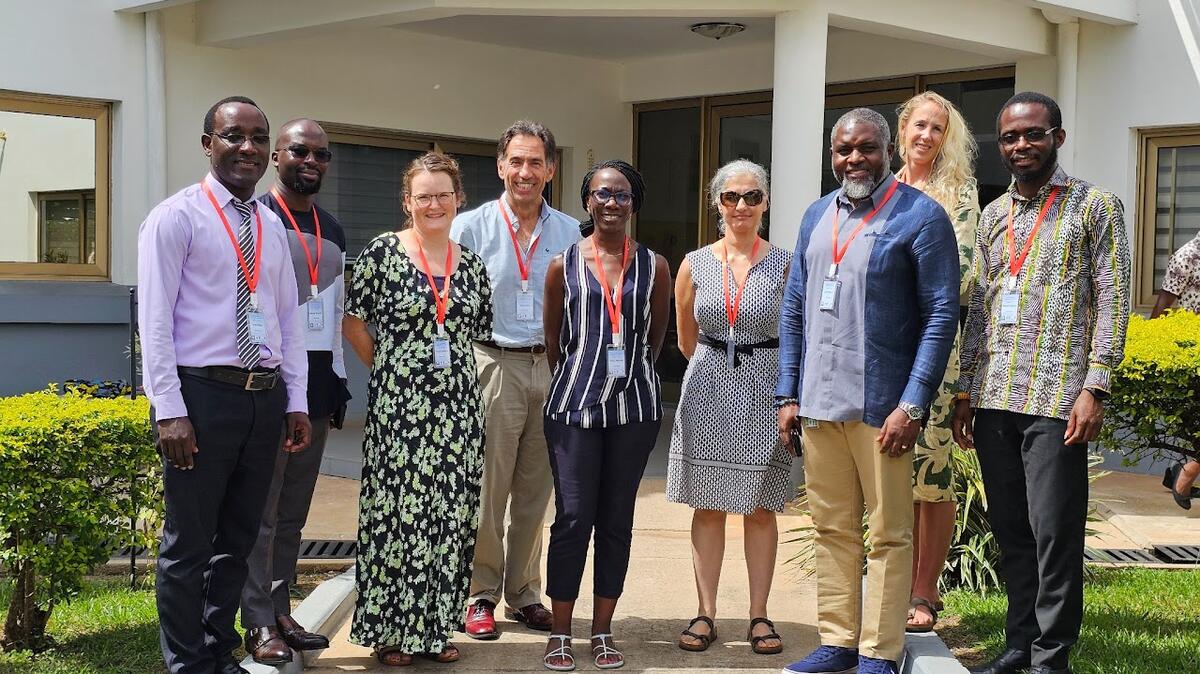
By Professor Ymkje Stienstra, Co-Director of the African Snakebite Alliance, Liverpool School of Tropical Medicine and KSRIC/KIPRE Nairobi Kenya.
As we mark International Snakebite Awareness Day, it's crucial to highlight the often-overlooked damage caused by snakebite envenoming and the remarkable efforts underway to mitigate this crisis.
Every year, snakebite envenoming claims the lives of up to 138,000 people and leaves 400,000 others with lifelong disabilities. Many of these victims live in remote communities across sub-Saharan Africa, where access to medical care and antivenom is limited. Snakebite also remains a neglected tropical disease (NTD), with insufficient resources dedicated to tackling it. But there is hope, and it lies in the power of collaboration.
The recently launched African Snakebite Alliance (ASA) is a prime example of how partnering across borders and disciplines can address the burden of snakebite envenoming. This new alliance, consisting of snakebite experts from the Liverpool School of Tropical Medicine (LSTM) and partner organisations in Malawi, Ghana, Rwanda, Kenya, and Eswatini, represents a step forward in meeting the World Health Organisation's (WHO) goal to halve snakebite deaths and disabilities by 2030.
What sets the ASA apart is its commitment to working together across sectors—science, health policy, and community engagement. Through this partnership model, we are building bridges between researchers, policymakers, and communities, all critical in addressing snakebite envenoming. But why is this approach so essential, and what benefits are we already seeing?

The power of partnership in overcoming barriers
One of the core reasons snakebite envenoming persists as a public health crisis is the significant gaps in research and the translation of research into policy. Initial studies carried out by the ASA revealed some of the reasons for this, such as limited funds, a lack of high-quality data, and insufficient engagement with policymakers.
By bringing together multidisciplinary teams, we can coordinate and prioritise research that directly addresses the needs of policymakers and communities affected by snakebite. We don’t want insights to gather dust in academic journals; instead, they will actively inform national health strategies and local practices.
In the coming years, we plan to address urgent research questions and community needs such as how to identify snakebite hotspots, distribute antivenoms in rural areas, optimise use of existing evidence, and integrate snakebite activities into other NTD programmes.
The ASA will continue to co-develop research with input from local communities and health workers, ensuring that it meets the real-world needs of those on the front lines of snakebite treatment and prevention.
Building capacity for sustainable solutions
Another key objective of the ASA is building long-term capacity for snakebite research and response. Historically, much of the expertise in snakebite management has been concentrated in too few institutions. To address this, the ASA prioritises training African scientists, healthcare workers, and policymakers through South-South collaborations.
We are particularly excited about offering opportunities to talented early-career researchers in Africa. Robert Asampong (KCCR, Kumasi Ghana) started his PhD trajectory on geospatial modelling of snakebites in Rwanda and Ghana in July. He is in Liverpool this week to further discuss his research plans with experts in geospatial modelling and begin his vital research.
The ASA will continue to issue open calls for grants that allow postdoctoral researchers to conduct impactful research. In turn, this will foster a new generation of experts who will sustain and expand upon successful research and policy.
Translating research into policy and practice
Ultimately, our success hinges on our ability to turn research into actionable policy. This is where our partnerships with national and regional bodies become critical. Through the ASA, we aim to raise the profile of snakebite on the socio-political agenda by providing policymakers with the robust, regionally relevant data they need to make informed decisions.
Research Uptake Officers appointed in Ghana, Rwanda, Eswatini and Kenya play a crucial role in facilitating the continuous dialogue between scientists, healthcare providers, and government officials. This will ensure both existing evidence and new research findings can be swiftly translated into practice.
A unified approach to a complex problem
Snakebite envenoming is a complex and multifaceted issue, but we can begin to untangle it through collaboration. The African Snakebite Alliance proves that when researchers, policymakers, and communities unite, we can develop sustainable solutions. Our work has only just begun, but the power of partnership is already evident in the strides we are making.
On this International Snakebite Awareness Day, we remind ourselves of the need to work together to make changes. Addressing snakebite envenoming is not a challenge that any one group can solve alone. It requires a unified effort that spans borders, disciplines, and sectors.
Together, we can meet the WHO's target and, most importantly, transform the lives of those most affected by snakebite envenoming.